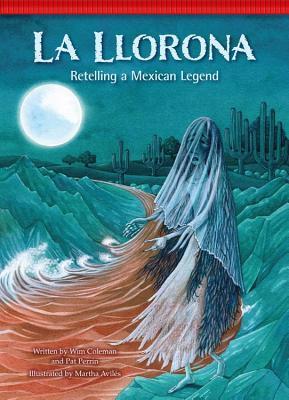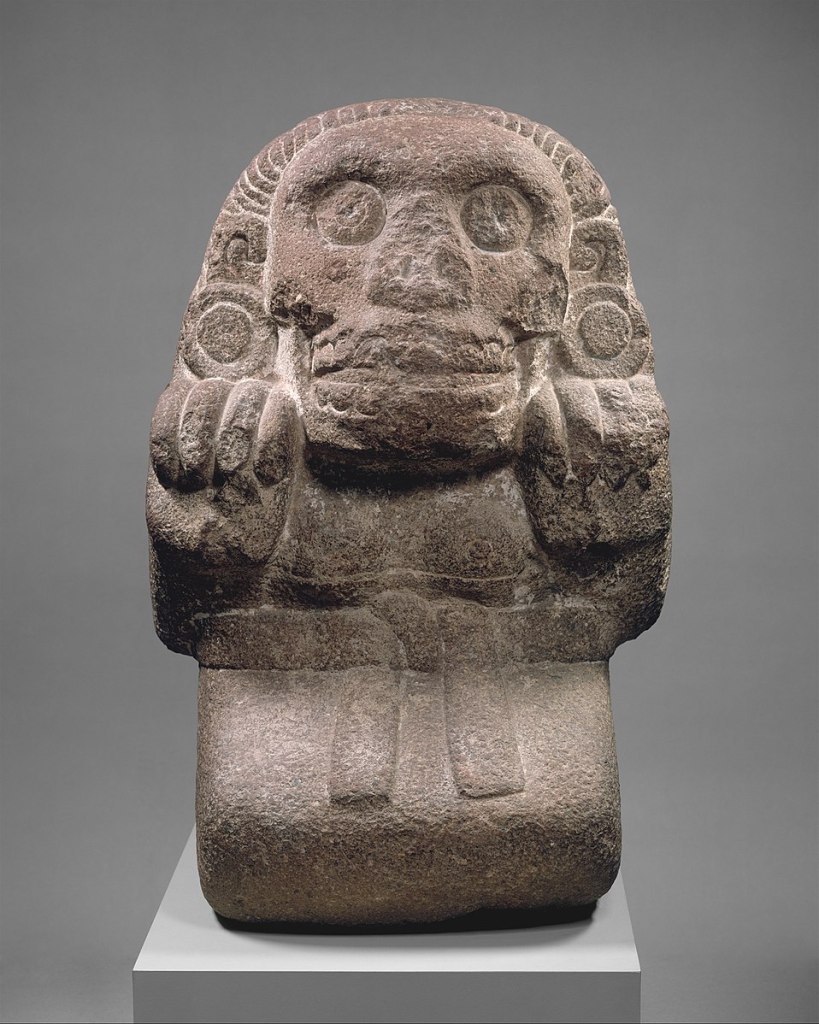A few years ago, Pat and I wrote a series of history-based “classroom plays” for Red Chair Press—short plays meant to read by middle school students at their desks in the classroom. One of these was a retelling of the familiar Mexican legend of “La Llorona” (“The Weeping Woman”). La Llorona is said to be the ghost of a mother who roams near rivers, weeping for the children she drowned in a jealous rage after learning of her husband’s infidelity.
In our play, David, a young Mexican-American boy from Texas, visits his great aunt in her rancho in central Mexico. On his first night there, he is lured away from the house by La Llorona. He finds himself under her spell, following her helplessly to what seems to be a certain death.

An earlier version of this play, written for somewhat older readers, included a scene that did not appear in the Red Chair Press version. It includes lyrics from the famous Mexican folk song “La Llorona.” We like the scene a lot and thought we’d share it. “Older David” is the narrator, telling the story some years after it happened.
*
Older David: Then I heard singing in the air—women’s voices, at once enchantingly beautiful and chillingly weird …
Cihuateteo: (singing)
Dicen que no tengo duelo, Llorona,
porque no me ven llorar.
Dicen que no tengo duelo, Llorona,
porque no me ven llorar.
(“They say that I feel no grief, Llorona,
because they don’t see me cry.”)
La Llorona: Ah, listen—how they greet me!
Younger David: But—who are they?
La Llorona: Patience. You will see them.
Older David: And in a moment, we reached a place where another road crossed ours. And there, on each corner, stood groups of women, shrouded in white gauzy linen from head to foot, singing that sad song …
Cihuateteo: (singing)
Hay muertos que no hacen ruido, Llorona,
y es mas grande su pena.
Hay muertos que no hacen ruido, Llorona,
y es mas grande su pena.
(“There are dead people who make no noise, Llorona,
and their sorrow is greater.”)
La Llorona: You do not know them, joven?
Younger David: No.
La Llorona: They are Cihuateteo—brave and mighty warriors.

Younger David: They sound like women.
La Llorona: They are no less warriors for being women. They died in childbirth. Women have been losing their lives in that battle since long before men invented the meaningless slaughter they presume to call “war.” War—true and everlasting war—is a strife of the blood, a strife in the blood.
Older David: Strife of the blood? Strife in the blood? I didn’t understand—not yet.
La Llorona: These spirits deserve our honor. Let us kneel before them.
Older David: She dropped to her knees and bowed her head. So did I—not by my own will, but by that spell she had me under. The women finished their song and bowed slightly—the same way José and Lilia had bowed to me when I’d arrived at my aunt’s house. Then they turned and walked away.
La Llorona: In the morning, they will join with the sun. Like true fallen warriors, they will travel with it across the sky in glory. When night falls, they will return to the crossroads.
Older David: When the women had disappeared among the cactuses, my companion rose to her feet, and so did I.
La Llorona: Come. We haven’t far to go.